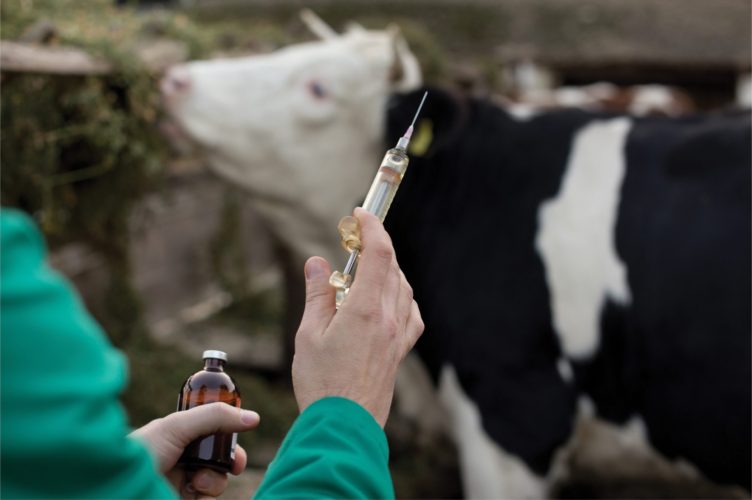Keeping livestock and pets healthy must be one of the most important things a smallholder does, regardless of the reason for keeping the animal. Whether you are keeping it to eat, to get products such as milk or eggs, as security or pest control, or simply as an ornamental, the animal will not perform its role properly if it is sick.
A health plan must consider all aspects of the animal’s life, including its environment and diet, stress levels, and immunity to diseases. Good management of pets and livestock includes the responsible use of medicines. A programme aimed at protecting animals from disease includes inoculation, deworming and dipping.
The Dept of Agriculture, Land Reform & Rural Development declares that certain animals must receive certain vaccinations. This is in order to prevent the spread of devastating diseases that can wipe out entire heard or flocks and in some cases can affect humans as well.
In this table you will find these compulsory vaccines, as well as some other very common inoculations given to help keep animals healthy.
A full vaccination programme should always be developed in consultation with your vet. It must take into account why you have the animals (breeding, meat, milk, ornamental etc), your property type (interaction between species, pasture type etc) and the size of your flocks or herds.
What is an inoculation?
When inoculating or vaccinating, we inject or introduce a serum, antigen, or a weakened form of a disease-producing pathogen into the body of the animal, in order to create immunity to the disease. Vaccines are made from either dead or weakened viruses (modified live – MLV) and are given either individually or as a group (multivalent). The animal should therefore be in good health when taken for inoculation or vaccination.
Do not vaccinate if the animal is stressed, exhausted, nutritionally deprived or has recently been ill. Certain vaccines should not be given to pregnant animals, so be sure to read the labels. Vaccines aren’t miracle shields against disease, but they do bring about increased immunity against disease. If you are injecting or dosing, ensure that someone is on hand to help you to restrain the animal. Vaccinations such as those in the table do not protect against worms, and diseases carried by ticks or fleas. Animal owners must include these types of diseases in their overall health-plan in order to ensure all aspects of their animals’ wellbeing is looked after
Download, and save or print this table. Use it to draw up your own inoculation plan for your animals.

